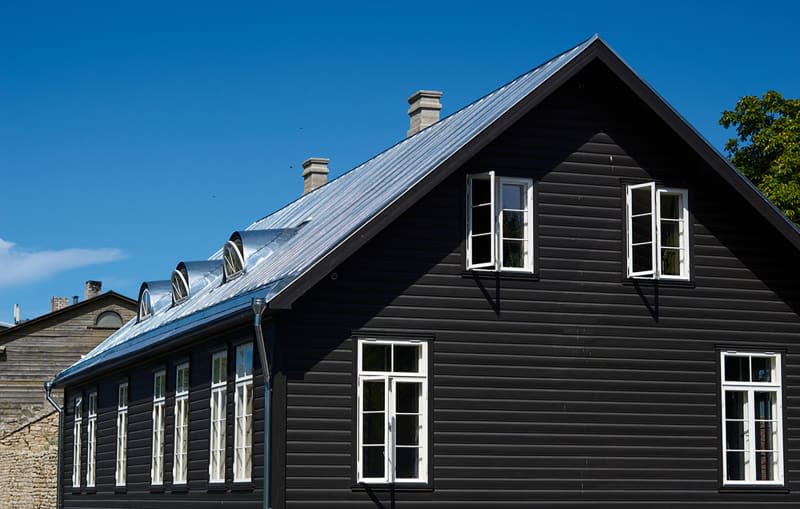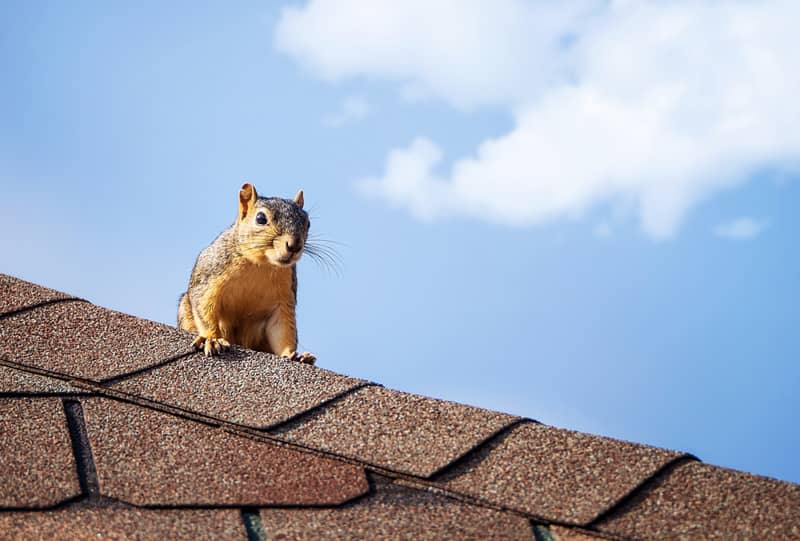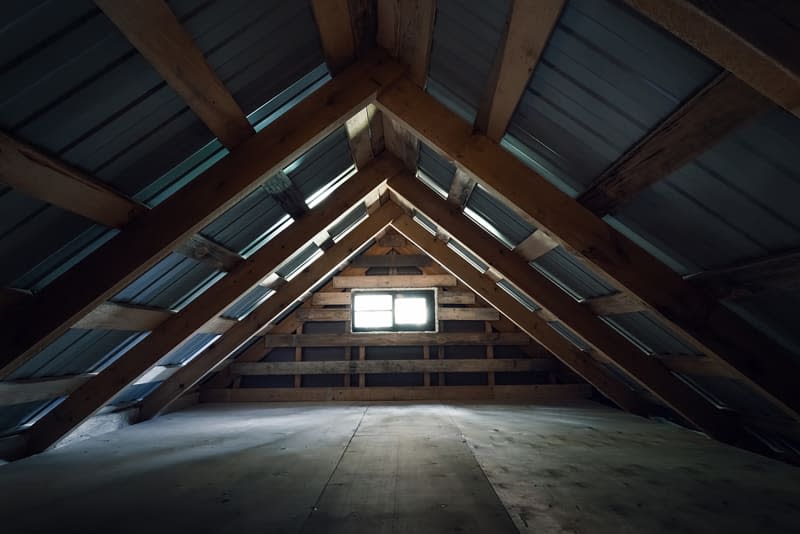5 Expert-Approved Methods to Get Rid of Squirrels In Your Attic

I was terrified of attic spaces when I was a child, and as an adult I can’t say much has changed. I still shiver at the thought of cobwebs and what’s behind the dust-laden stacks of National Geographic. But there’s one thing er, creature — I definitely don’t want to encounter in an attic: squirrels. If you’ve suddenly become a begrudging host for nature’s unwanted squatters in your attic, don’t panic. There are a few easy ways to get rid of them.
To ensure these cute but troublesome rodents don’t make meals of your stored mementos or chew through crucial electrical wires, I asked four pest control experts for the best ways to get rid of squirrels in an attic.

How Do Squirrels Get into Attics, and Why?
Squirrels are very agile, as they skim trees and run around your yard. Unfortunately, that skill makes it simple for them to climb up your home or reach your roof from a nearby tree limb. “Squirrels often find their way into attics through small openings or damaged areas in the roof,” says Bill Swank, founder of Pest Source.
Swank says these pests are attracted to heat and shelter, especially in cold weather. “Squirrels will often find their way into attics searching for warmth and somewhere to nest,” says Natasha Kulinksi of Beaver Pest Control.
Once inside, they’ll quickly make it their new home. “Attics are great locations, as they are often left untouched for weeks on end and contain an assortment of things that squirrels can use to make themselves comfortable,” Kulinski says. She also explains that rodents associate people with an abundant food supply, so the closer squirrels live to bustling homes, the closer they are to a food source.
What Kind of Damage Can Squirrels Do?
According to Mohamed Samir, a senior technician at Bugwise Pest Control, squirrels can cause significant damage once they are inside. “They may gnaw on wood, insulation, and electrical wiring, which can lead to costly repairs and even fire hazards,” he says. Depending on where a squirrel decides to bed, their nests can block vents and restrict airflow, potentially leading to moisture and mold issues.
Kulinksi says regular chewing is necessary for a squirrel to stay healthy. “They are part of the rodent family, so they need to gnaw to keep their teeth from getting too long,” she explains. Wood flooring, beams, and furniture items stored in an attic are tempting surfaces for a squirrel’s necessary gnawing. Additionally, soft, cozy items — such as blankets, insulation, and clothing — are often the perfect bedding to encourage squirrels to stay.
“Another risk of squirrels in the attic space is they could contaminate cold water tanks with urine and droppings,” adds Kulinski. Of course, if your water tank is stored in your basement or another part of your home, squirrels can still leave behind unsanitary messes throughout your attic. Swank also warns that rodents can chew wires, leading to potential fire hazards and costly repairs.
How to Prevent Squirrels from Nesting in Your Attic
“To prevent their nesting, it’s essential to seal all entry points, ensuring your attic remains a squirrel-free zone,” Swank says. He suggests repairing damaged roofing or siding and installing wire mesh over vents and openings. “Remember, prevention is always more humane and effective than removal,” he adds.
Kulinski and Samir both advise keeping tree limbs trimmed so they don’t touch your house. That way, squirrels aren’t tempted to run along roof lines and gables to find easy access points. They also recommend checking your roof each season to ensure that holes haven’t formed and — at the very least — go into your attic once a month to ensure pests haven’t made their way inside.

How to Get Squirrels Out of Your Attic
Finding an infestation isn’t ideal, but squirrels are relatively easy to evict — especially if you create a less-than-ideal environment. There are several ways to humanely remove squirrels from your home. Here’s what our experts suggest.
Swank says to consider constantly using lights and noise to create an inhospitable environment, encouraging squirrels to leave alone. A strobe light or a loud radio may discourage them from residing on your upper floor. (Note: This will likely disrupt your daily life, so try this method when you don’t need it to be quiet.)
According to Swank, installing an exclusion device like a one-way door is very effective, allowing squirrels to exit your attic but not reenter.
You can use live-capture traps, but Swank says it’s essential to check and comply with local wildlife laws regarding trapping and relocation. You may be unable to release certain squirrel species in specific locations. According to the Wisconsin Humane Society, if you use a trap, check it at least every 12 hours to make sure an animal is not in it for too long.
Some homemade remedies like peppermint oil or a mix of garlic and vinegar might work as natural deterrents, Swank notes — squirrels don’t like either of the smells but they won’t harm them. To use this method, place the scent-laden cotton balls where squirrels are nesting or fill a spray bottle with water and add the garlic and vinegar mix or peppermint oil. Spray the mixture near areas inhabited by rodents.
Kulinski advises you may find it’s enough to poke your head into the attic and make a bit of noise to scare the squirrel back outside. Just be prepared to exit quickly; a scared squirrel may run around frantically if it can’t immediately find the exit.
When to Call a Professional for Squirrel Removal
“Coexisting with wildlife responsibly is key, and sometimes, that means knowing when to call in the experts,” Swank says. “If the situation escalates or you’re unsure about handling it yourself, it’s wise to call a professional,” he adds. A pro with a pest control service can safely and humanely handle the removal and ensure preventive measures are in place, safeguarding your home against future invasions.
When to Leave Squirrels in Your Attic
Although leaving rodents in your space may sound odd, there is one specific situation when you should leave squirrels alone. “During nesting season, if there’s a family of young squirrels, what we try to do is encourage the homeowner to allow them to reside there for another six weeks until the young squirrels are able to leave,” says Mike Londry of Westside Pest Control. Once the baby squirrels leave, you can call a pest control expert to help prevent the situation from happening again. Londry is partial to the one-way door.

